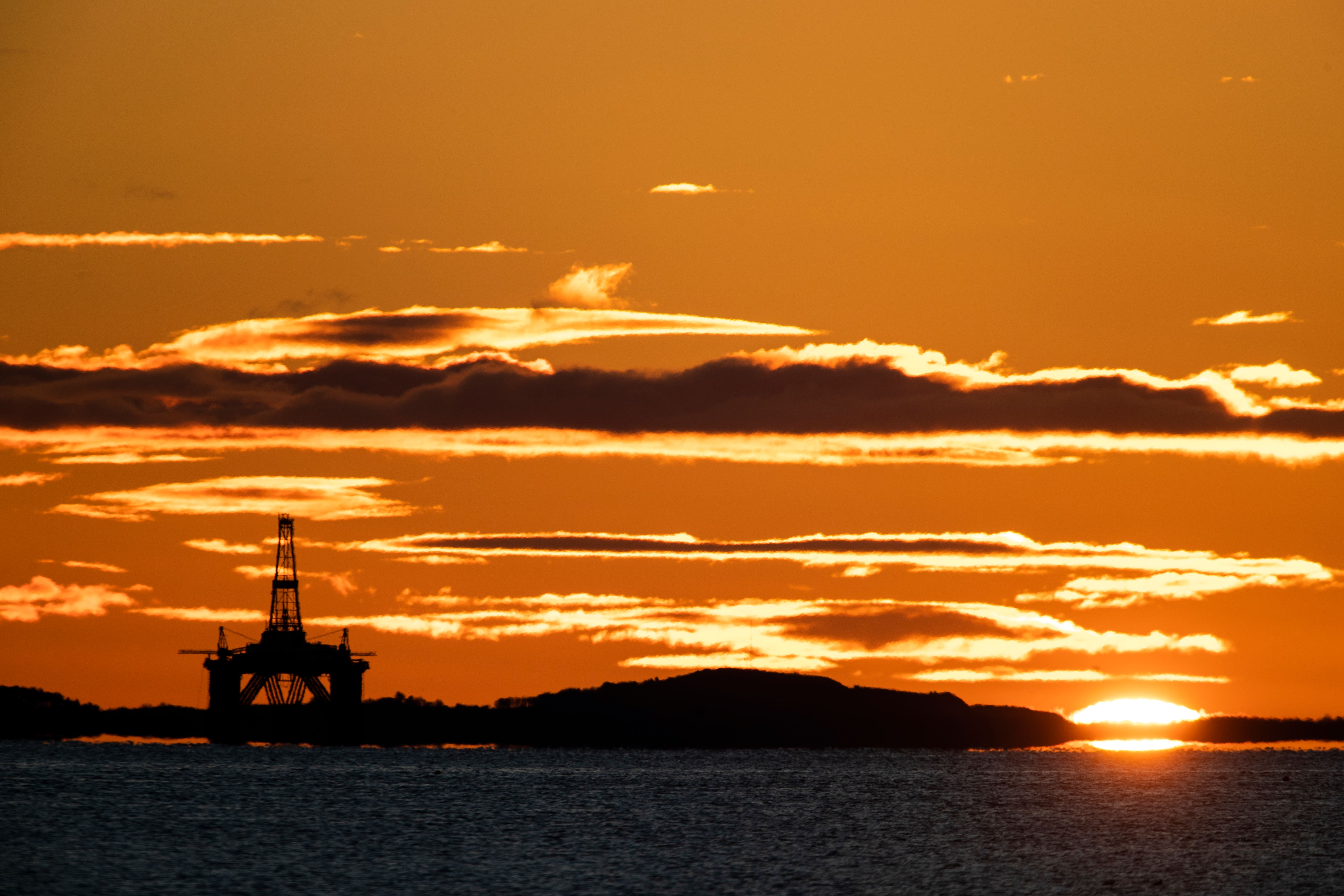New oil and gas exploration good for environment, insists climate minister
The Green Party hit out at the move, warning ‘we truly have stepped through the looking glass’.

A new licensing round for oil and gas exploration in the North Sea will be “good for the environment”, climate minister Graham Stuart has said.
The North Sea Transition Authority (NSTA) will begin the 33rd round of offshore licences, with the UK Government arguing increasing production will boost the economy and energy security.
“Our development is not going to affect our usage,” Mr Stuart said, “I know it sounds contradictory – but it’s actually good for the environment.”
But Green Party co-leader Adrian Ramsay said: “We can only hope to hold global warming to under 1.5C degrees if we leave fossil fuels in the ground.
“The Government’s claim that burning ever more fossil fuels from the North Sea will help the UK meet its international obligations to become net-zero by 2050 has no connection to reality – we truly have stepped through the looking glass.”
The Green Party also said any new production, even if fast-tracked, would not be available for years and so would not help to address the current crisis.
And campaigner at Friends of the Earth Jamie Peters said: “To claim that more oil and gas extraction is good for the environment would be almost comical if it weren’t so dangerous for our planet. You don’t have to be a climate scientist to know it’s blatantly untrue.”
Mr Stuart said a new licensing round for oil and gas exploration is “entirely compatible” with climate targets, and “we have one of the lowest emitting production systems for oil and gas”.
Speaking to BBC Breakfast, the climate minister said: “Actually it’s good for the environment, because when we burn our own gas it’s got lower emissions around its production than foreign gas… as well as supporting British jobs.
“Our development is not going to affect our usage, our usage is determined by the framework of the Climate Change Act and the independent Climate Change Committee which informs Government policy.
“So you really can be assured that it’s actually – I know it sounds contradictory – but it’s actually good for the environment that we are going to produce more of our gas and oil at home.”
Licences are being made available for sectors of the North Sea – known as blocks – with the NSTA estimating more than 100 may be granted.
Companies are being urged to apply for licences covering areas to the west of Shetland, in the northern North Sea, the central North Sea, the southern North Sea and east Irish Sea.
A total of 898 blocks and part-blocks are being made available – but in a bid to encourage production of new oil and gas supplies as quickly as possible, the NSTA has identified four “priority cluster areas” in the southern North Sea.
These areas – located off Norfolk, Lincolnshire and Yorkshire – are known to contain hydrocarbons and are close to existing infrastructure, giving them the potential to be developed quickly.
Business Secretary Jacob Rees-Mogg said: “Putin’s illegal invasion of Ukraine means it is now more important than ever that we make the most of sovereign energy resources, strengthening our energy security now and into the future.
“Ensuring our energy independence means exploiting the full potential of our North Sea assets to boost domestic production – recognising that producing gas in the UK has a lower carbon footprint than importing from abroad.
“That is why we welcome the launch of the NSTA’s new licensing round, which will help support highly skilled jobs across the UK’s energy industry, boosting both our energy security and our economy.”
His comments came as NSTA chief executive Andy Samuel insisted that security of supply should “not be in conflict with net-zero” ahead of the new round of licensing.
Dr Samuel said: “The NSTA is working closely with industry and Government to meet UK needs with North Sea supplies produced as cleanly as possible.
“The UK is forecast to continue importing natural gas as we transition to a fully renewables system and our North Sea gas has less than half the footprint of imported LNG (liquified natural gas).”
He stressed all developments undergo environmental and emissions assessments.
But Scottish First Minister Nicola Sturgeon said there has to be a transition away from oil and gas and accused the UK Government of “haphazard planning” over energy.
Speaking to BBC Breakfast ahead of the SNP’s party conference in Aberdeen on Friday, she said: “In terms of new licences, I’ve been very clear that within the context of that just transition, we’ve got to subject any decisions about further exploitation of oil and gas to the most stringent climate checks.
“I worry right now that what we’re hearing from the UK Government is just a continuation of their haphazard planning about energy.
“In the long term, what they’re doing is undermining energy security, rather than strengthening it, because energy security, it’s difficult, it’s challenging, but the route to energy security is to secure that transition away from fossil fuels to renewable.”